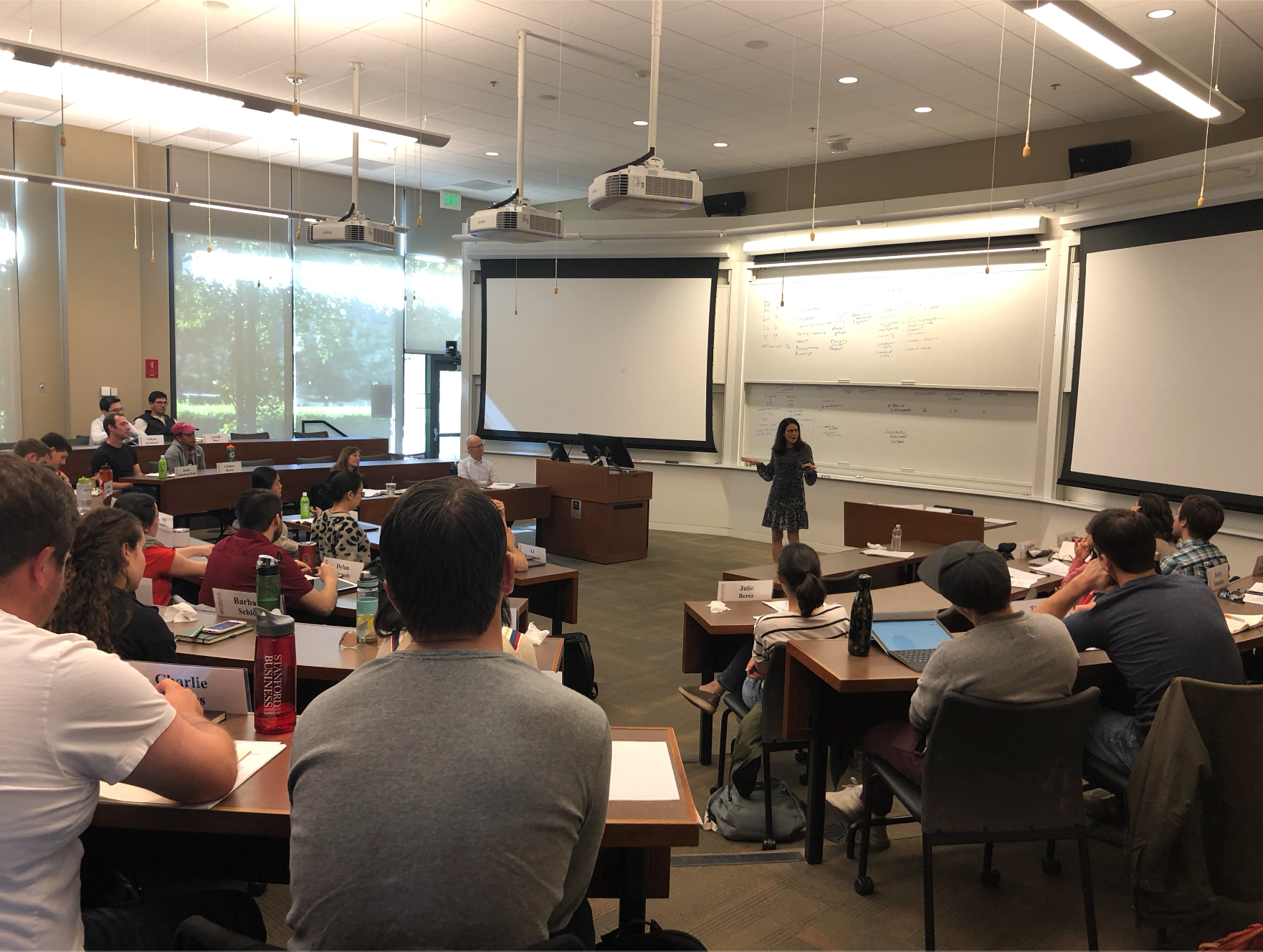How can older Americans who have taken breaks in their careers re-enter the workforce? Carol Fishman Cohen, the founder and chair of iRelaunch — a company that aims to support individuals seeking to do just that —discussed the issue in a case study that students considered in a new GSB course, STRAMGT 524: “Longevity: Business Implications and Opportunities.”
The course is taught by Robert Chess, a GSB lecturer in management, and Laura Carstensen, founding director of the Stanford Center on Longevity. It focuses on the role of people aged 50 and older in businesses, specifically exploring how managers and entrepreneurs should consider this demographic in their strategies.
Course enrollment was open to all Stanford students, and it at one point had a 30-person waiting list. The class was capped at 56 to ensure that there would be productive discussion and participation, Chess said.
The class includes lectures and case-study talks with guest speakers and speaker panels. Cohen flew in from Boston on Monday to speak to the class about her company, iRelaunch, which works to help “re-launchers” — people who decide to re-enter the workforce after taking a career break for at least one year — secure full-time jobs.
“Our primary focus is the work that we’re doing on the employer side, making sure that there is a demand for re-launchers,” Cohen said. “We have 80,000 in our iRelaunch community, and we have tools and resources for them to secure positions.”
She discussed different types of re-launchers — some who loved the work they did in the past and wanted to continue down the same path, and others who decided to work in a new field.
“The definition of re-launchers is broadening,” Cohen said. “We have expats who may not have been able to work in foreign countries, military spouses, veterans and others who want to return to work for financial reasons.”
Cohen also offered advice to students in the course who were considering career breaks, telling them that they should be “documenting milestones” in their careers.
“Later, when you’re coming out of your career break and trying to interview, you have to come up with anecdotes [to use in interviews],” she said.
Many re-launchers are women who took career breaks to care for their children, according to Cohen. That includes Susan Golden, a co-developer of STRAMGT 524 and a Stanford Distinguished Careers Institute (DCI) fellow, who took a career break for over 10 years to spend time raising her children. DCI allows accomplished individuals in midlife to return to school and “renew their purpose, build a new community and recalibrate wellness” according to its website.
“I was a fellow in 2016, and it was based on that experience that I developed the idea to create a new course on the business opportunities and needs related to longevity,” said Golden, who came up with the idea for the course with Carstensen, who was already doing work on longevity.
Chess, who has worked in fields ranging from academia to business management to the White House Office of Economic and Domestic Policy, revealed in Monday’s class session that he’s taken three breaks in his career, for reasons ranging from raising his triplets to traveling the world and playing golf.
Oshrat Goldberg MBA ’20, a student enrolled in STRAMGT 524, praised its focus on longevity and stated that she enjoyed the course.
“I think it’s a very innovative topic that is relevant to a lot of us from a personal perspective but also as we think about new career opportunities,” Goldberg said. “A lot of that has come up in different lenses that the course has taken.”
This article has been corrected to reflect that Carol Fishman Cohen is the chair of iRelaunch, not the CEO. The Daily regrets this error.
Contact Camryn Pak at cpak23 ‘at’ stanford.edu.
